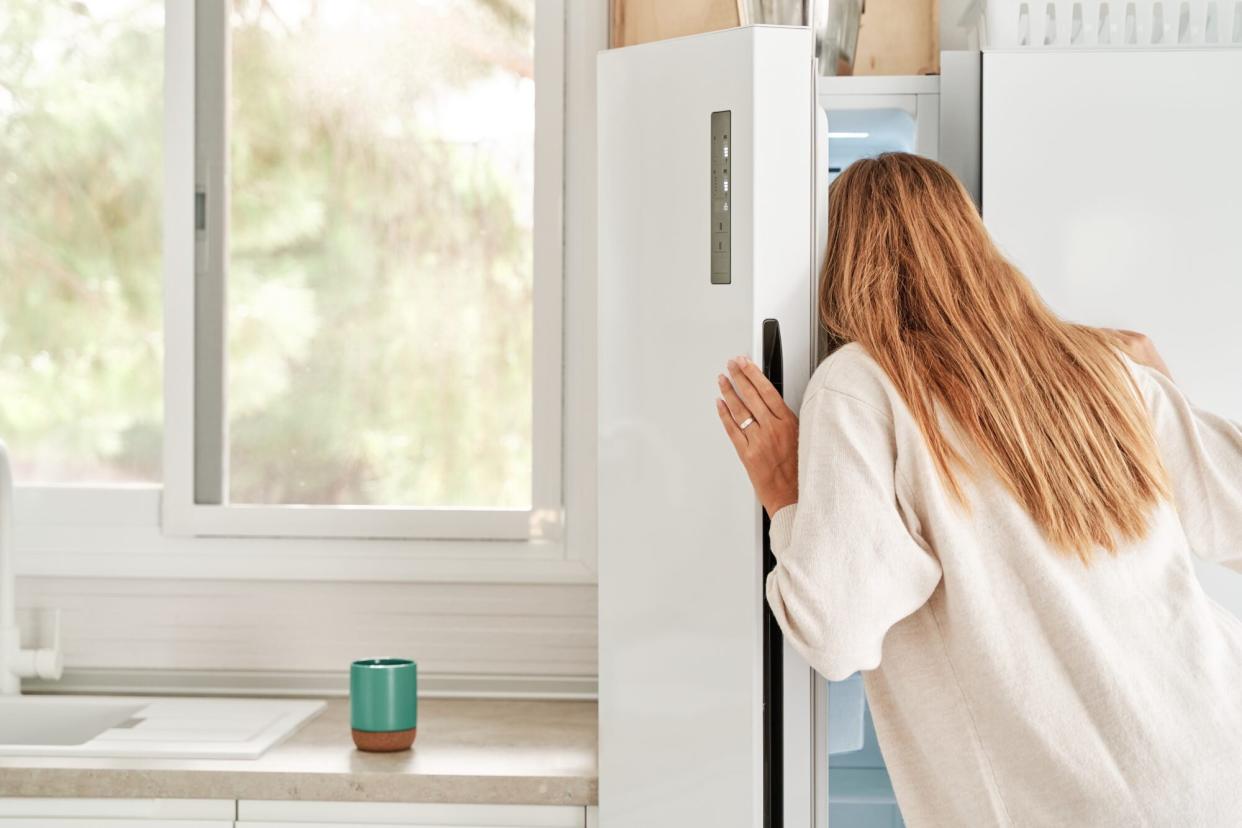What Are the Real Benefits of Refrigerating Your Skincare Products?

Getty Images
We all know that icing your face is pretty much a guaranteed way to reduce inflammation and tighten the appearance of pores, but throwing your skincare products in the refrigerator is a whole other story. And whether or not there are any actual benefits is still up for debate.
The practice became somewhat mainstream in recent years, and since then, mini skincare fridges have popped up left and right. However, there seems to be a bit of confusion as to what exactly this does, if it even does anything at all. So, we tapped three skincare experts to ask them what they think about this trend.
RELATED: Icing Your Face Is the Cheapest and Easiest Way to Soothe and Tighten Skin At Home
Does Refrigerating Your Beauty Products Benefit Your Skin?
We all know that keeping your products cool isn't necessary, so what's the big fuss about? Cosmetic chemist and founder of BeautyStat, Ron Robinson, says the only benefit is a sensorial one. "Sometimes cooler products might feel more soothing and refreshing," he explains.
And while refrigerating your skincare may give you a nice cooling effect, make sure they're not too cold. "You need to keep in mind that cold temperatures can damage skin's barrier," Bryan Barron, a product developer at Paula's Choice, explains.
The expert also shares that a study found that exposing damp skin to cold temperatures led to dilation of blood vessels in skin. "Done repeatedly, this dilation can lead to visible capillaries and persistent facial redness," he warns.
Can Refrigerating Your Skincare Products Negatively Affect Their Formulas?
Robinson says that most companies perform stability testing on their products to confirm they have a good shelf life, so that by the time the product is manufactured then shipped to consumers, they can use a product that will last a good amount of time without any compromises to it's performance, safety, or aesthetics.
"Stability testing is done by exposing the formula to extreme cold and hot temperatures over an extended time to test that it remains intact," he explains. "Sometimes, extreme heat or cold can cause the formula to break down or separate. If that is the case, the product is usually revised to prevent this from happening so as to guarantee the consumer a good shelf life once they purchase it and begin using it."
So, your mini fridge will likely not ruin your products' efficacy unless it's extremely cold.
VIDEO: Dermatologists Use This Anti-Aging Eye Cream in Their Own Routines
Are There Any Skincare Products That Benefit From Being Refrigerated?
Since cool products can reduce redness, puffiness, and inflammation, there's something to be said from throwing your favorite face mask into the fridge before using it. "Eye gels and serums — not creams — are great for refrigerating as the cool will aid in de-puffing," confirms Candace Marino, a Los Angeles-based facialist and Fresh ambassador. "Gel-based or sheet masks are great to cool for the same reasons."
Just remember, it's best to do this sporadically to prevent disrupting the skin barrier.
Marino also adds that vitamin C can spoil if exposed to heat and light, and therefore, refrigerating it can actually help preserve its efficacy.
Barron agrees, adding that research has shown that this ingredient not only remains stable, but also maintains its potency for longer when refrigerated or frozen. "If the temps in your home routinely exceed room temperature, you may want to store your ascorbic acid product in the refrigerator," he suggests.
Is There a Benefit to Refrigerating Skincare Tools?
We understand what cold temperatures can do to our favorite formulas, but tools are another story. Since they're meant to be glided over the skin, Robinson says they can help reduce swelling and puffiness, but that this effect will only be temporary.
"Keep ice rollers and cold tools moving on the skin," says Marino. "To avoid burning the skin, do not keep them in one place."

